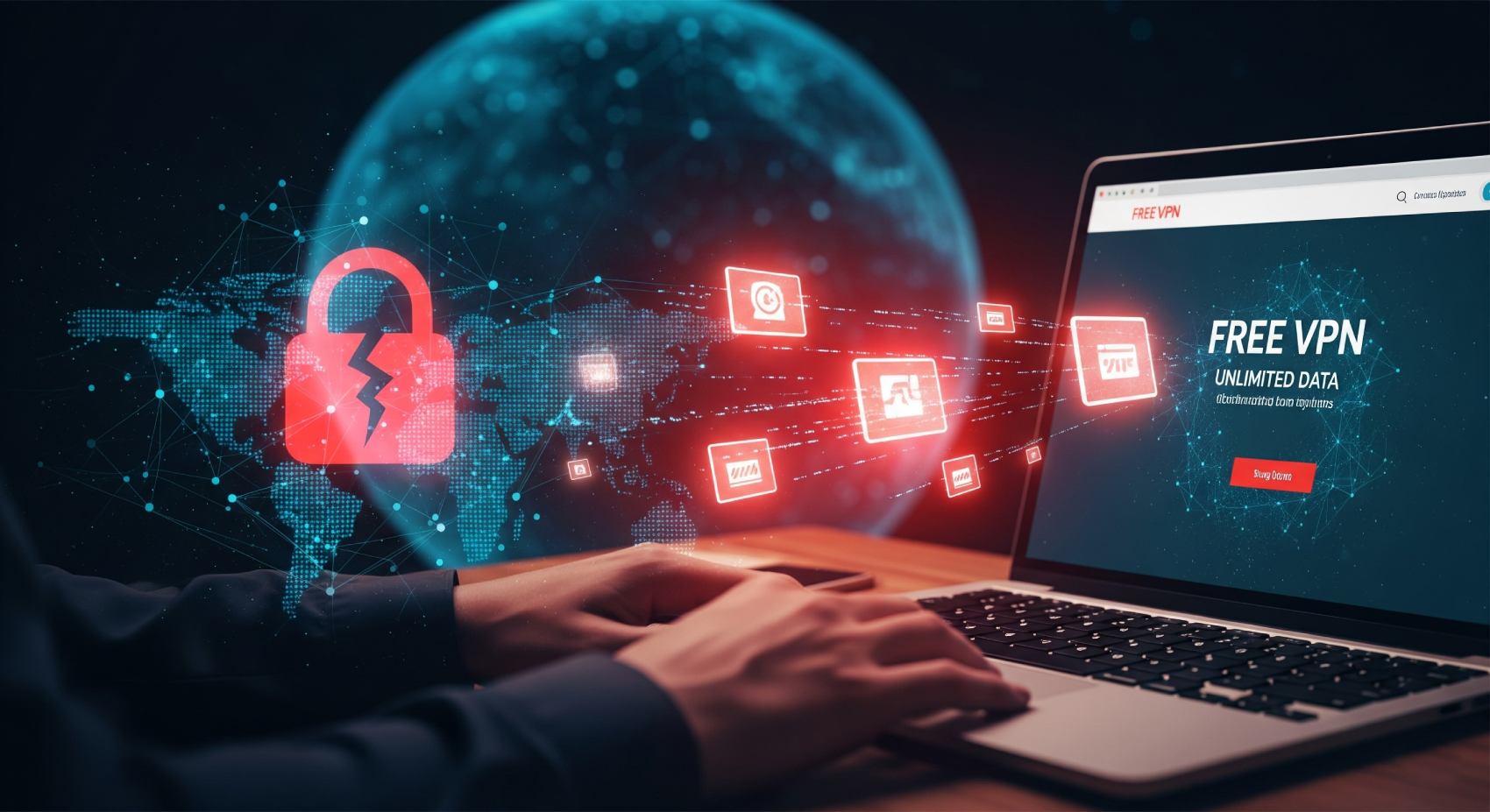The Hidden Costs of "Free": Why Your Free VPN Isn't Really Free
While tempting, free VPNs often come with a hefty price tag for your privacy and security. Learn what you're really giving up.
By Hunter Browning / 19 May, 2025
Why Your Free VPN Might Be a Security Nightmare
In the quest for online privacy, a Virtual Private Network (VPN) is a powerful tool. It encrypts your internet traffic and hides your IP address, keeping your activity safe from prying eyes. With so many free options available, it's tempting to grab one and start Browse securely.
But there's a catch. Running a secure VPN service costs a lot of money for servers, development, and maintenance. If you're not paying a subscription fee, that money has to come from somewhere else—and it's usually at the expense of your privacy and security.
If It's Free, You're the Product
A free VPN provider is a business, not a charity. Their primary methods for making money directly contradict the reasons you'd want a VPN in the first place:
- Selling Your Data: Many free VPNs log your online activity, including the websites you visit, the duration of your sessions, and your real IP address. They then sell this valuable data to advertisers, data brokers, and other third parties. This is the exact opposite of privacy.
- Injecting Ads: Some services inject their own ads or tracking cookies into your browser. At best, this is annoying. At worst, these can be malicious ads (malvertising) that lead to phishing sites or download malware onto your device.
The Top Security Dangers of Free VPNs
Beyond the shady business models, free VPNs often expose you to serious security threats.
Data Logging and Selling
The most significant danger is the logging of your data. A trustworthy VPN operates under a strict no-logs policy, meaning it never records your Browse history or personal information. Free VPNs often have vague privacy policies that give them permission to log and sell your data. This information can be used to build a detailed profile about you, which is then sold to the highest bidder.
Malware and Adware Injection
You're trusting the VPN's software on your device. Some free VPN apps have been caught with malware or spyware bundled into their installation files. Instead of protecting you, the app itself becomes the security threat, potentially stealing your passwords, financial information, or personal files.
Weak Encryption and Data Leaks
Proper encryption is the core of a VPN. Maintaining strong encryption protocols (like WireGuard or OpenVPN) costs money. Free services often cut corners, using outdated or weak encryption that can be easily broken. They're also notorious for data leaks (like DNS or IP leaks), which completely defeat the purpose of a VPN by exposing your real IP address and online activity.
How to Stay Safe: The Smart Alternative
The solution isn't to abandon VPNs altogether. It's to choose one that has a business model built on protecting you, not selling you.
Invest in a reputable, paid VPN service. For just a few dollars a month, you get the peace of mind that comes with:
- A strict no-logs policy verified by independent audits.
- Strong, modern encryption to keep your data secure.
- A clear privacy policy and business model based on user subscriptions.
When it comes to your digital security, "free" can have the highest cost of all. Your privacy is worth the small monthly fee for a service you can actually trust.

